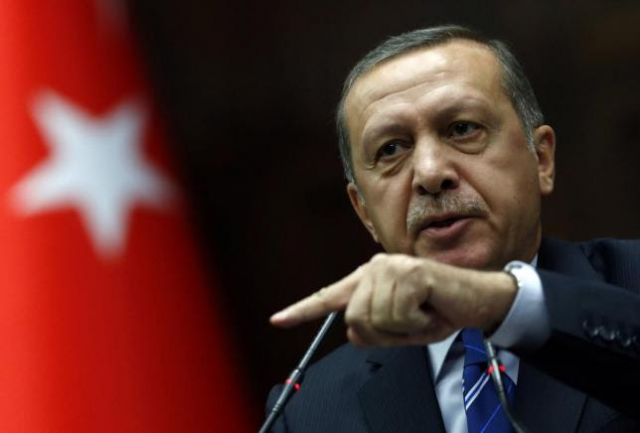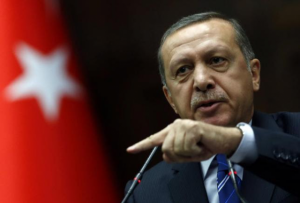Greece Outraged by Turkish President’s Irredentist Speech
TBILISI – Recep Tayyip Erdogan’s recent claims that parts of Greece, the Balkans, Syria and Iraq belong to Turkey has outraged the Greek public.
Responding to the fury, Turkey’s ambassador to Georgia Zeki Levent Gumrukcu claims the media in Greece has intentionally misrepresented Erdogan’s words.
"The President's speech reflected the very close relationship between the peoples of the region, who have lived side by side for centuries. He was highlighting the social and cultural similarities between the nation’s that border Turkey,” said Gumrukcu.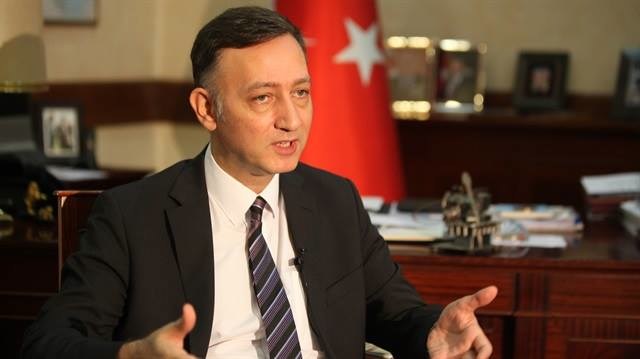
In a speech delivered at Rize University on the Black Sea, Erdogan seemed to hint that regions once under Ottoman occupation should still be a part of the territorial claims of modern Turkey.
The Greek media was quick to pounce on Erdogan’s comments, blasting the hardline Turkish president as psychologically unsound and branding him an unabashed irredentist bent on restoring the Ottoman Empire.
“Erdogan is apparently suffering from a serious case of megalomania. He is delirious and wants to expand Turkey’s borders to include Thrace, Thessaloniki, and the Aegean Islands in Greece, as well as the whole of Cyprus. He’s also claimed that huge swathes of Bulgaria, Georgia, Syria and Iraq belong to Turkey,” English-language news agency Keep Talking Greece wrote earlier this week.
Gumrukcu cautioned against misinterpreting Erdogan’s words, saying Turkey has been Georgia’s closest and most reliable neighbor since the tiny South Caucasus country regained its independence in 1991.
“Among Georgia’s other neighbors, Turkey is the only country that does not have any questions regarding borders. Batumi is Georgian, and Rize is Turkish, and it will always be that way,” said Gumrukcu.
Greece’s Athens News Agency (ANA) wrote that Erdogan has called for an independence referendum in Western Thrace, the northeastern part of Greece that is home to a large ethnic Turkish Muslim minority.

“Erdogan cited some obscure Turkish historians who believe that the borders of Turkey also included Cyprus, Syria, northern Iraq, Batumi, southern Bulgaria, and large parts of Greece,” ANA stated.
The news agency later withdrew the original report and published a correction saying that Erdogan did not mention a referendum, but reiterated that Turkey wanted to re-establish control over the regions mentioned in his speech.
ANA released a statement saying the original report of a vote on independence was a mistake its correspondent in Turkey, and that person had been fired after releasing false information.
Greece’s Foreign Ministry issued a statement in response to Erdogan’s statement, calling the claims “dangerous”, which could lead to a destabilization of the Eastern Mediterranean.
Historic Rivals
Greece and Turkey have been bitter rivals for centuries.
The animosity dates back to the Turks’ conquest of Constantinople (modern Istanbul) in 1453, and the Ottoman Empire’s 500-year occupation of parts of Greece and the Balkan Peninsula.
The two nations have fought multiple territorial wars since Greece regained its independence in 1823.
Greek nationalists made a disastrous attempt to claim historic Hellenic-speaking regions of Anatolia following the Ottoman Empire’s defeat in World War I. The result led to the destruction of the millennia-old Greek city of Smyrna (Izmir), and the 1922 deportation of 1.3 million ethnic Greeks from Anatolia and 500,000 Turkic Muslims from Greece. The population exchanges were followed years later with pogroms and discriminatory policies towards Istanbul’s remaining Orthodox Christian Greeks in the 1950s and 1960s, which reduced the population to less than 2,000 people from 250,000 in 1923.
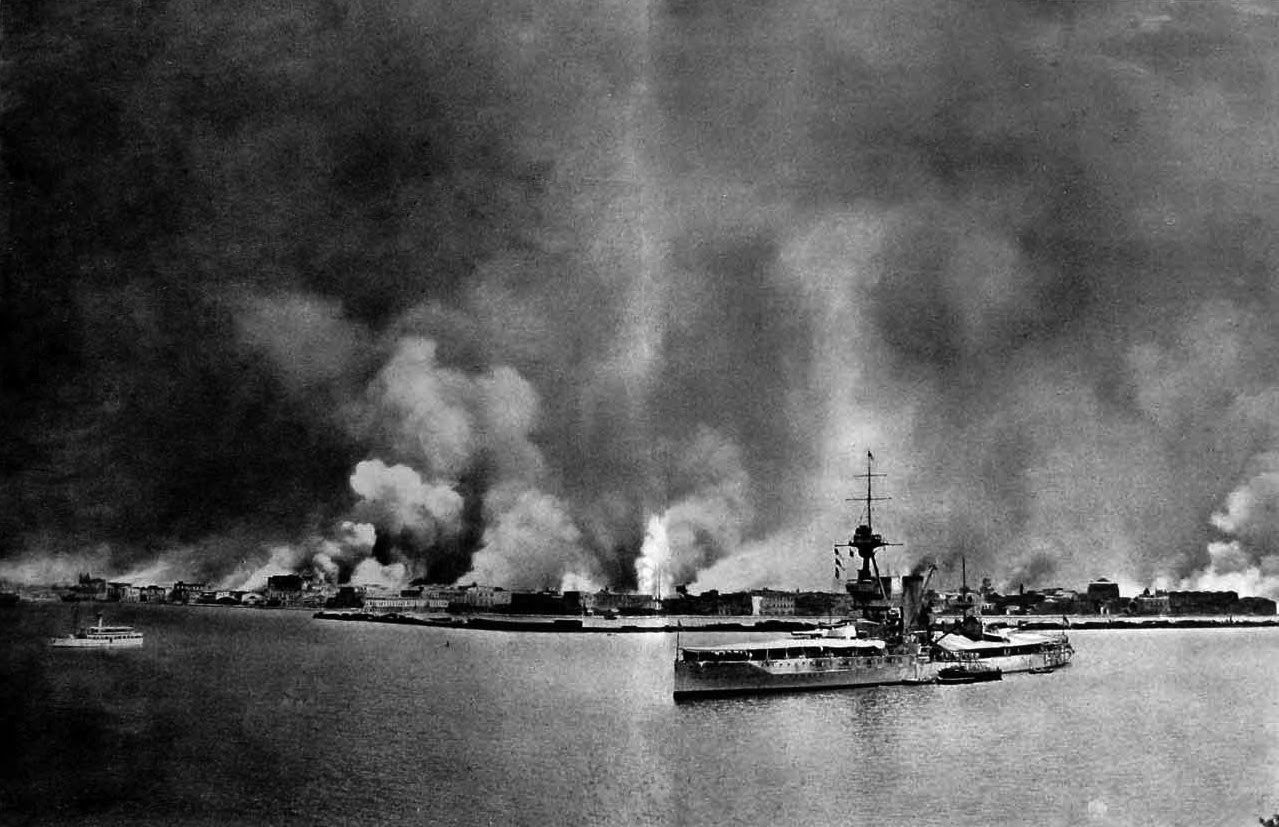
The two sides remain at loggerheads over the status of Cyprus, with the south supported by Athens and the EU, and the unrecognized Turkish Republic of North Cyprus supported by Ankara.
Turkey was outraged when Greece allowed eight Turkish military officers to fly by helicopter to the Greek city Alexandropoulis following their alleged involvement in an attempted coup against Erdogan in July.
The officers remain in Greece but have been held in custody by Greek authorities after being found guilty of illegal entry into the EU’s Schengen Zone.
But Athens has rejected their initial bid for asylum but has refused to acquiesce to Erdogan’s demands that the officers be returned to Turkey to be tried for treason.
The case threatens to strain the already strained relations between the two uneasy NATO members.
Turkish authorities have suspended or dismissed a reported 100,000 civil servants, judges, lecturers, military personnel and police – all of who have been purged for alleged links to the US-based retired Islamic cleric Fethullah Gulen, whom Erdogan blames for organizing the coup.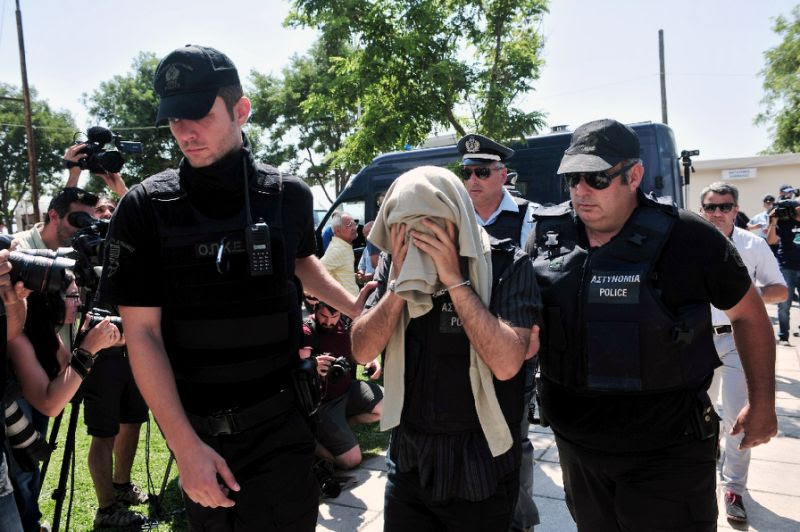
To consolidate power, Erdogan’s ruling Islamist AK Party has overseen the arrest of more than 30,000 people since the attempted coup, including 5% of the nation’s police force and has demanded that the US hand over Gulen so he can stand trial.
By Thea Morrison and Nicholas Waller
Photo 1: Turkish Ambassador to Georgia Zeki Levent Gumrukcu
Photo 2: Muslim Village, Northern Greece
Photo 3: The Destruction of Smyna (Izmir) by Turkish forces, 1922
Photo 4: Turkish Officer in Greek Custody
